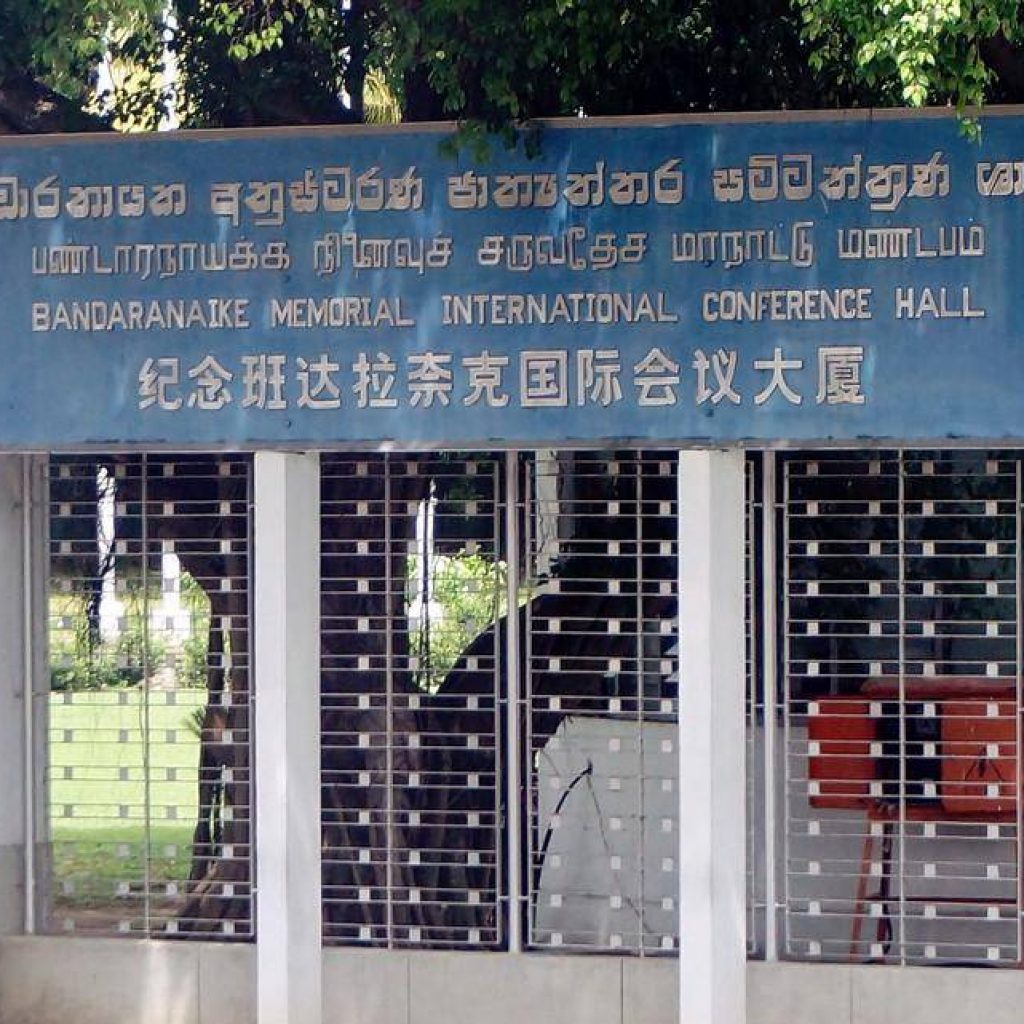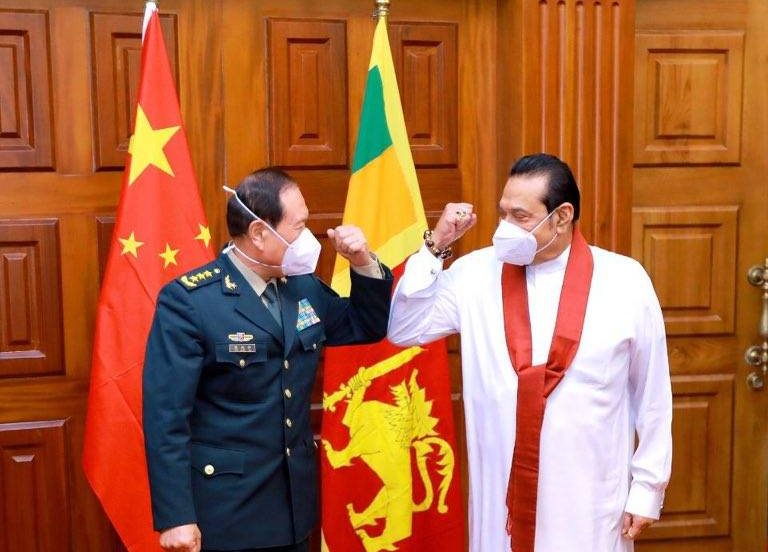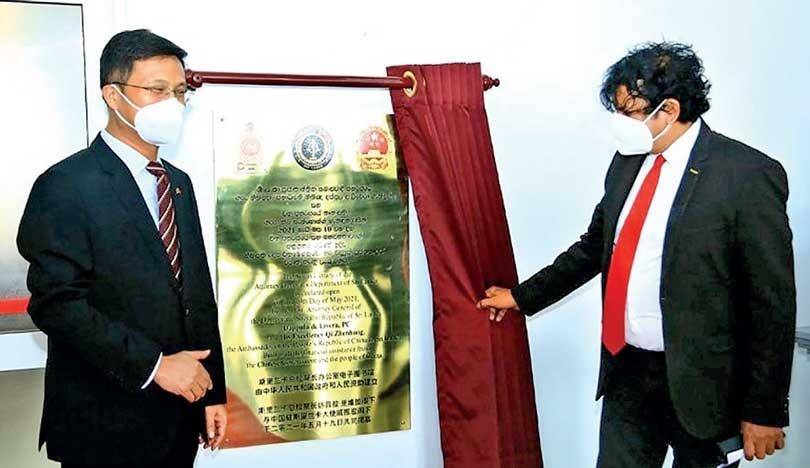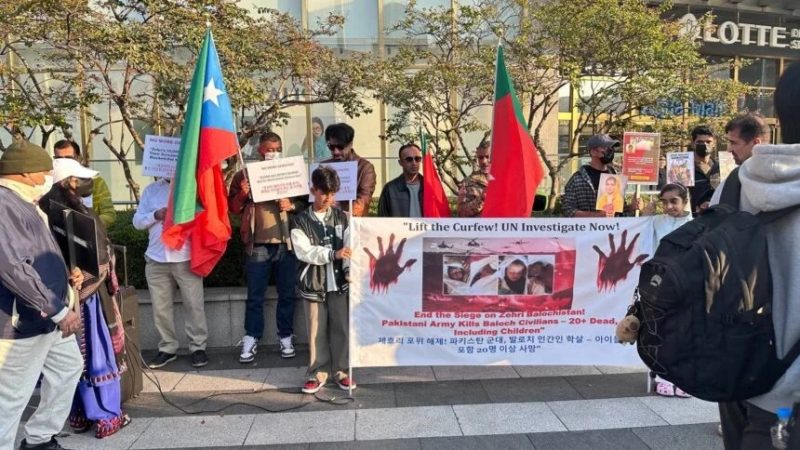The inclusion of Mandarine raised concerns over whether the China is beginning to impose its cultural hegemony on the Sri Lanka…reports Rahul Kumar
Sri Lankans are holding a major debate in the country after two back-to-back incidents in which Mandarin was included in sign boards omitting out Tamil from government projects. Now people are debating if China is beginning to impose its cultural hegemony on the island nation.
This week Sri Lankan Attorney General Dappula de Livera unveiled a plaque written in Sinhala, English and Mandarin. It caused a controversy on both countries that Tamil was not included and Mandarin was. This goes against the official language trilingual policy in the country wherein Sinhala, Tamil and English are used.
The controversy erupted after China gifted a smart library to the attorney general’s department. Social media platforms were abuzz with the development. Facing criticism, the plaque was removed. The attorney general’s office declined to comment.
In a bid to control the damage, the Chinese embassy tweeted: “We noticed an interim sign in a JV building site not abiding by trilingual rules. Request raised. We respect all three official languages in Sri Lanka, and urge China companies to follow”. It shared images of other Chinese-built structures that included the Tamil language in their signages.
This controversy erupted on the heels of another similar one.
Just last week, the central park being developed in the China-backed Colombo Port City had replaced Tamil with Mandarin. After the news went viral on Tamil groups and in social media circles, the Port City Colombo released a statement saying that the photograph being circulated is that of an old signboard.
News website, Colombo Page, published a statement, by Port City Colombo, released on its trilingual letterhead that the project is under construction and the signboards put up by the contractor are meant for employees and authorised visitors. It added that temporary sign boards do not have to be in all three official languages.

The clarification said that due to a majority of employees being locals, Sinhala language was used while English and Chinese were used for the considerable number of foreign workers at the site. It added that, “… When opening doors to the public to visit, any and all signboards in all public areas will be erected as per the government regulations for such boards,” the Port City Colombo said.
ALSO READ: Lankan Navy rescues foreign crew from burning cargo ship
The controversy generated by the signage and the plaque refuses to die out.
State Minister of National Heritage, Performing Arts and Rural Arts Promotion, Vidura Wickramanayka told Sri Lankan newspaper, The Daily Mirror: “As a country we should not allow these type of things to happen. We talk about co-existence. An inquiry in this regard has to be carried out…”

Batticaloa Member of Parliament from the Tamil National Alliance (TNA) Shanakiyan Rasamanickam said that it is China which decides what to put on the sign boards in Sri Lanka. He added that Sri Lanka had become “Chi-Lanka”.
The controversy over the languages comes soon after the massive opposition to the Colombo Port City, which had been opposed by almost the entire cross section of the Sri Lankan society except President Rajapaksa Gotabaya’s ruling party – Sri Lanka Podujana Peramuna. Even powerful Buddhist monks had opposed Chinese control over the Colombo Port City saying that it would make Sri Lanka a colony of the communist giant.
(This content is being carried under an arrangement with indianarrative.com)
ALSO READ: Soon, Lankans will need a passport issued by China to enter Port City














